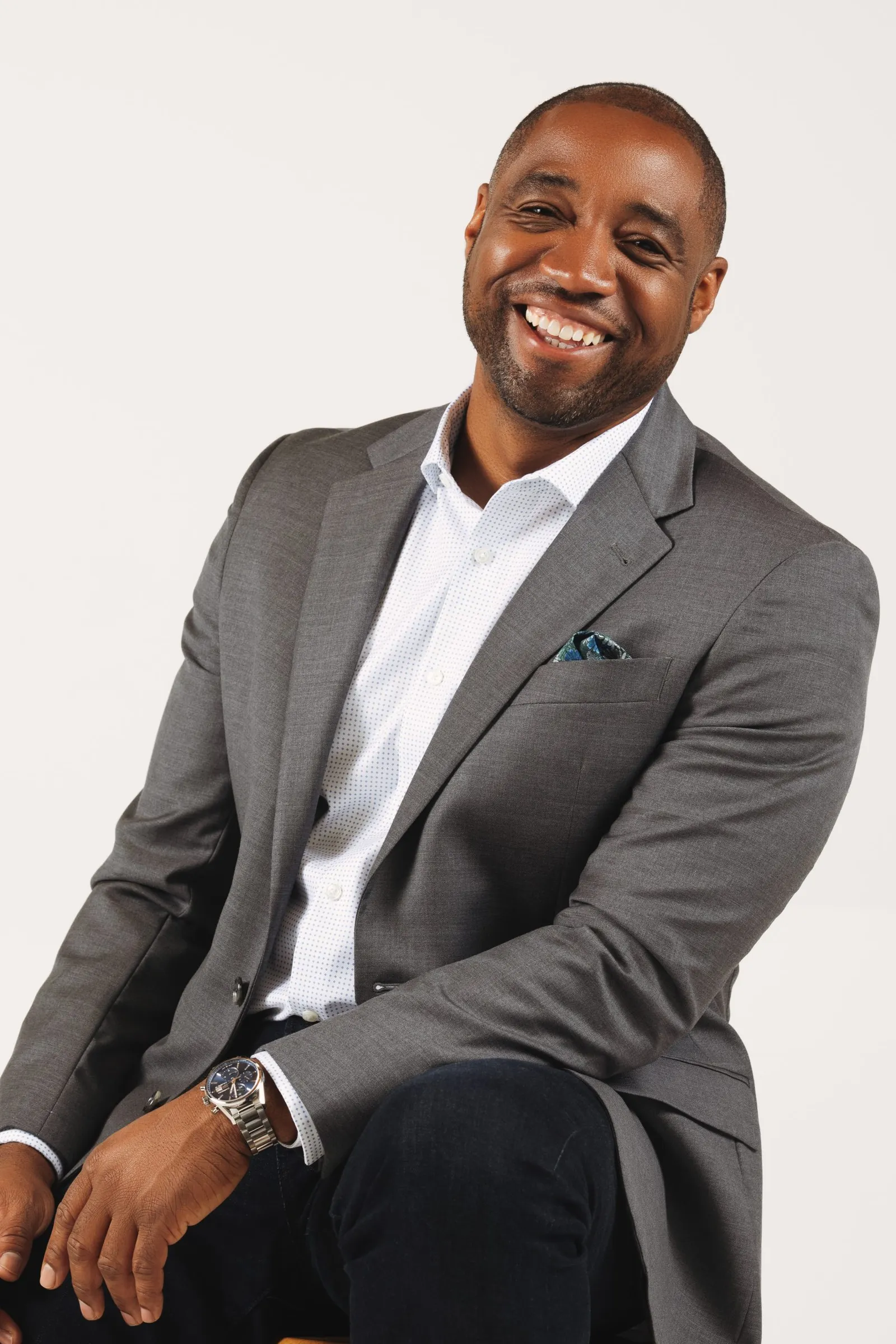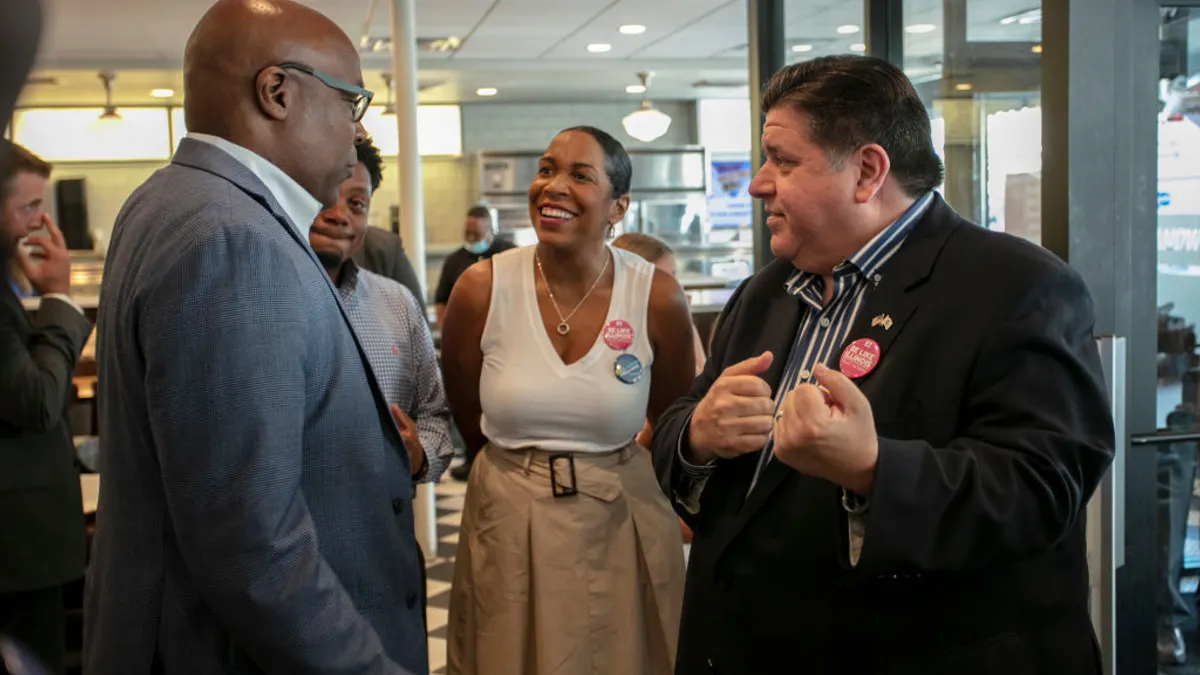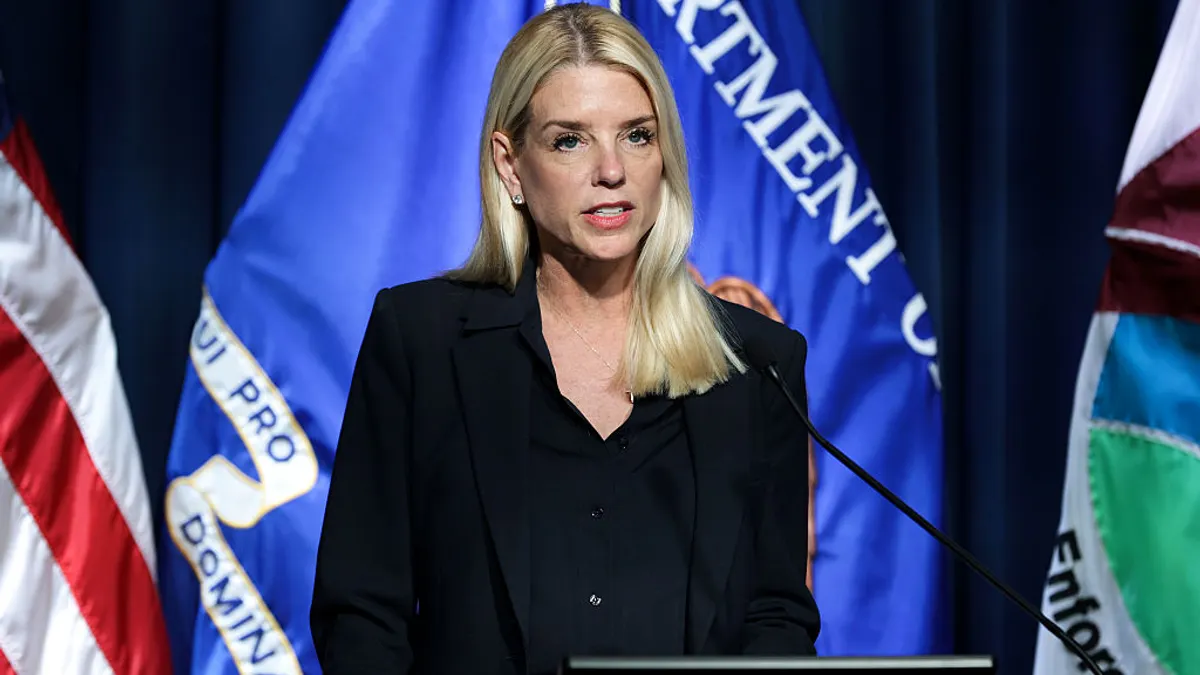Race, gender, sexuality, disability status — all have received increased attention in the past few years as companies’ diversity efforts have scaled up. But what about class background?
For an aspect of identity that “transcends” the rest, according to CJ Gross, founder of DEI firm Ascension Worldwide, class background gets short shrift in the workplace. It may be that we’re “too close to the forest to see the trees,” Gross said. Class status is the water we swim in, often determining how we talk, what we eat and how, where and with whom we socialize.
Class status can also hold us back, both inside the workplace and before we get in the door. Gross explored the topic in his recently published book, “What’s Your Zip Code Story?” He spoke to HR Dive about how he became interested in class and how HR can help mitigate class-based disparities in the workplace.
Editor’s note: This interview has been edited for clarity and brevity.
INDUSTRY DIVE: You don’t hear a lot about class in the workplace. Why were you interested in this element of the DEI space?
CJ GROSS: I was having a conversation with a colleague of mine back in 2019. This gentleman was an African American guy, he was gay and he was maybe 15 years older than me. He was talking about racism and being excluded. I created a story in my head that this guy probably has had more challenges, more exclusion than me because he's older, so he probably experienced more racism, and he's gay, so he probably experienced that as a exclusionary factor as well.
But as he talked about his experience, I could see how our trajectories in life diverged — that we were really talking about class. He was talking about being excluded from a country club. I was like, “I’m just happy to go to the Y, you know?” The experiences that he had really catapulted him to the place where he was in his life, and although race mattered, class mattered even more in terms of where he was and where I was.
I read an article by Joan C. Williams — “Why companies should add class to their diversity discussions” — and I was like, “This is what we need to be talking about.” I submitted a presentation to the Society for Human Resource Management’s 2019 conference. They put me in the very last hour of the last day, and I figured no one would come. And then 60 people showed up. People would not leave — the AV person had to pull the mic cord and cut the lights out. People were literally sobbing because they had not been able to share this suppressed experience.

You talk about class bias and understanding it in the workplace. How would you define class bias?
Class bias is a specific bias based on a social category and it’s preconstructed based on history. The undertone is that class has always existed. When we were a hunter and gatherer society, our brain used bias to classify people, places and things to make sure that when we went out to go find dinner, that we didn't become dinner.
Now, it's the ability to influence politics, to gain power. The further you go up the ladder, it becomes more vast what you can do with these class concepts.
What are some ways that people exercise class bias in the workplace?
One simple and easy example is when people look at resumes. When we're looking at a resume in less than five seconds, we're creating a story based on, “Oh, this person went to Georgetown.” “This person went to… what's the name of that college? I don't even know.” So immediately, there's a story created about this person. In small towns, we find that heritage — your last name — is important.
The way you dress and how you talk are also part of it. Yale found that hiring managers will make the decision about you based on how you speak in the first few seconds of conversation.
All of these things show up in the hiring process and in succession planning — who's going to be chosen for this stretch opportunity, for this new project or for vice president.
I can definitely think of things that happen in the workplace in which it's assumed you have money you may not have. For example, if your employer wants you to travel and be reimbursed later for it.
It creates barriers to entry to different fields. Being a consultant is one … in one circumstance I saw, you had to have $4,000 of cash on your credit card that you could, you know, pretty much lend to the company as you do their work.
Another thing that came up in research is where you vacation. I was once at a training — I was actually the facilitator — sitting around a table with predominantly African American folks. These were medical doctors, going around the table talking about all of the different countries they’d visited. I didn't have any stamps in my passport. So someone says, “CJ, where have you traveled?” And I was like, “Florida?” I was so embarrassed.
But now there are plenty of stamps in my passport. And now that I’ve accessed these opportunities, conversations are totally different.
There are a lot of unspoken elements. I remember just a few years ago learning about the “hidden job market.” For 10 years or something I was just kind of cold-applying to things on Indeed. The whole concept of networking — I think for people who didn't grow up automatically in that space — it's just a whole other world.
It's intimidating for someone who has not kind of come from that. And one of the things I found out when I was doing research, I see that here too, right? When you come from privilege or wealth or whatever you want to call it, it's all baked into your psyche. I spoke to one woman from India and asked about mentorship. She said she didn’t know what it was, and I asked how she learned the things she knew. “Well, my parents taught me and then they had someone teach me this and they had an accountant come in and teach me that.” And I said, “That’s a kind of mentoring.” It’s not anyone’s fault, but there’s not an awareness.
When you think of a leader, you think of someone who is strong, confident and worldly. That’s developed in a person. People don’t just wake up that way.

CJ Gross
Author, "What's Your Zip Code Story?"
That's the part I want to bring attention … because when we focus on class, we get to equity. You can't get to equity — how resources are distributed — if you're not willing to understand these categories of class.
Some people would prefer to give employees a day off or some training. But mentorship is something that every person who was standing at the top level of the organization has experienced and that's not something you can buy. You can buy coaching, but you can’t buy mentorship: someone taking you to lunch, putting you under their wing, and developing you and growing you. That's what happened to me — I’m literally here and doing everything I'm doing because someone gave me the equity, the opportunity.
What are some ways that the workplace can be more inclusive to people from different class backgrounds or, as you call them in your book, class migrants?
I think the approach is to make the recruiting and hiring process and the succession-planning process more equitable for people with fewer resources. I believe companies need to operationalize three C’s. The first C is creating a mentorship culture — a community of mentorship. When you have that culture, it leads to other recruiting opportunities, like internships. It leads to sharing resources that may not normally be shared.
The second C is cultural and character development. When you think of a leader, you think of someone who is strong, confident and worldly. That’s developed in a person. People don’t just wake up that way. That’s why you see organizations with people who are diverse only at the lower level or middle management of a company and not at the top — those people have not been developed and cultivated through the pipeline. The percentage of class migrants who are people of color is greater, so that’s where race comes in.
The third C is credentials. People think if you’re going to get a good job and grow, you need a good education — and maybe some certifications beyond that. But there are so many hidden credentials that we don’t talk about but that allow you opportunities and bring you into new spaces. For example, knowing how to play golf, ability to travel. These are credentials that we don’t teach in school, we don’t talk about. But they’re hidden things — unfortunately, classist things — that allow you to develop yourself, to grow and to build connections.
You mentioned the ways that class bias can play into, for example, something like recruiting. How can HR avoid that?
The first thing to do is to acknowledge that you have biases. I think it’s a challenge for people to acknowledge that.
Thinking of it structurally: How can we reverse-engineer the problem? What we've done in our company is to scrub or take out the data, the names, so we can't see what your name is. If you're male or female, your ethnicity — we don't know anything about that. We also take your college away, and your title. Unfortunately, there are so many people who are stuck in positions who have the experience, but because they've never had the [right] title, it doesn't translate over and they never get the opportunity. And then your zip code. Being able to exclude specific things in your hiring process will be important.
Think of the questions you ask. We did research and found that women who are married will get paid less than women who are not; the thought is because you're married you don't need [the money]. Even if that’s not true, it's a story.
There should be mentorship baked into different aspects of your organizational development — especially for people who identify as being class migrants or minorities.
The last thing I’ll say: The hardest and quickest thing to do is to put people in leadership who have a mindset for diversity already. People who, for example, speak multiple languages without any diversity training are naturally more diverse. Often, they can see how people are different and see the value of it.



















